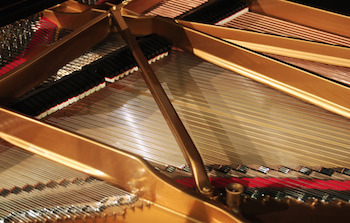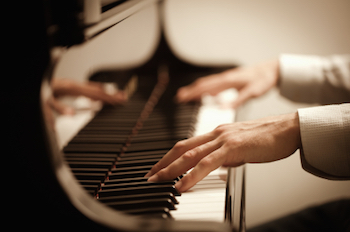It probably started with a note or two playing off key. Or maybe a single octave doesn’t sound right with the others.
You know the only way to bring it back into key is to have your piano tuned. But do you want to go through the hassle of bringing someone in? Finding the right person for the job, waiting for them to come into your home, and paying for it might not be on your list of to do’s. Maybe you should try it yourself.
Or should you?
Tuning your own piano is a bad idea for many reasons. And in some cases can do more harm then good.
Tuning experience on other instruments isn’t the same
Maybe you have experience tuning a guitar. It can’t be that much different, can it? Actually, it can. Each piano is unique, and is tuned based on the temperament of the piano. They have different gauges and string lengths, and therefore what sounds great on one piano may not work on the next. A professional uses sophisticated software, as well as aural tests that will help calculate how to tune the temperament of each piano he or she works on.
Tuning stability
A piano’s tuning pin must be set and secured by the tuner. A tuner will move the pin as much as is necessary to achieve the right pitch. Only then will they secure it to make sure it stays put. If its not done correctly, one aggressive song will cause the note to pop back out of tune. Its one of the last things a professional piano tuner will master, and takes most tuners many, many piano tunings to understand.
Strings breaking
Depending on the age of the piano, piano wire can become brittle and be easily broken. If the string is adjusted too far sharp, it may snap. String replacement is another skill that takes practice to develop. A professional tuner will have the appropriate tools and skills to fix or replace the piano wire if it should break during tuning.
Timing
If you talk with a piano tuner, they will tell you their first try at tuning took them four, six, even eight hours or more to bring a piano back into tune. And in some cases it wasn’t a perfect job. After years on the job and hundreds of tunings later, many tuners can perform the function in an hour or two. Tuning takes a good ear, and over time your hearing precision becomes more difficult to concentrate on. Especially when you don’t do it on a regular basis.


